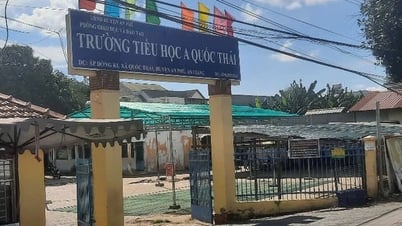Illegal training institutions offering degrees from undergraduate to doctoral levels are quite common in India, believed to be due to the high demand for higher education.
The University Grants Commission (UGC) of India earlier this month released a list of more than 20 unlicensed higher education institutions. However, these institutions are offering a wide range of courses in the social sciences, natural sciences, and health sciences, from undergraduate to doctoral levels. They also offer short-term, non-degree courses.
Among these, Delhi has the largest number with 8 facilities.
The UGC has warned students against enrolling in these institutions. Not only will they lose money and time, the quality of education will be poor, but students will also have difficulty finding jobs because their degrees will not be recognized. They will also have difficulty pursuing higher education.

Photo: The Sunday Guardian
Experts say the emergence of many unlicensed universities shows an imbalance between supply and demand for higher education.
According to the 2021 statistics of the Indian Ministry of Education, the country has 1,113 universities. The number of students enrolled in the 2020-2021 academic year reached a record high of 41.4 million.
While public universities have not met the demand, top private universities have high competition and tuition fees. Therefore, many students look for cheaper places, some of whom do not know that these are fake universities.
Saikat Majumdar, professor of English at Ashoka University, said fake universities were a "widespread" problem in India.
"Students who cannot get into accredited universities usually have two paths. If they can afford it, they will go abroad, otherwise they will enroll in unlicensed institutions," he said.
Shruti Kapila, a professor at the University of Cambridge, believes that the country's nearly 40% youth unemployment rate has also contributed to the boom in fake universities.
Another reason, says Mousumi Mukherjee at OP Jindal Global University, is that India's inter-state quality assurance and governance mechanisms are ineffective.
Experts say this is unlikely to improve anytime soon, with Professor Majumdar even predicting the problem could get worse.
“Public higher education is on the decline in India. A large proportion of the private universities will be blatantly profit-making, and there will always be fake universities,” he said.
Doan Hung (According to THE, The Times of India)
Source link



![[Photo] Prime Minister Pham Minh Chinh receives Ambassador of the French Republic to Vietnam Olivier Brochet](https://vphoto.vietnam.vn/thumb/1200x675/vietnam/resource/IMAGE/2025/5/13/f5441496fa4a456abf47c8c747d2fe92)
![[Photo] President Luong Cuong attends the inauguration of the international container port in Hai Phong](https://vphoto.vietnam.vn/thumb/1200x675/vietnam/resource/IMAGE/2025/5/13/9544c01a03e241fdadb6f9708e1c0b65)


![[Photo] Prime Minister Pham Minh Chinh meets with US business representatives](https://vphoto.vietnam.vn/thumb/1200x675/vietnam/resource/IMAGE/2025/5/13/5bf2bff8977041adab2baf9944e547b5)





















































































Comment (0)